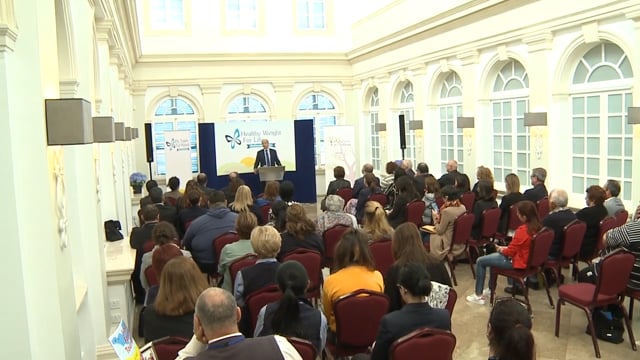[WATCH] 41% of school-children in Malta are obese and overweight
Health minister Chris Fearne launches Mediterranean diet in bid to fight obesity


Health minister Chris Fearne has said that 41% of schoolchildren in Malta have been classified as obese, with a higher incidence in boys than in girls.
Fearne said that the data had been collected from schools all over Malta to gather Body Mass Index (BMI) and weight and height for children across the island for the first time to ascertain how big the problem is.
He added that the figures show that urgent action needs to be taken, and he added that the government sought to tackle the problem on four fronts including through the campaign being launched today to promote a Mediterranean diet.
The campaign entitled ‘Healthy weight for life - Mediterranean diet’, will include outreach programmes at public spaces like markets, supermarkets and schools to raise awareness and even spread knowledge about healthy eating and cooking habits to adopt.
Health promotion director Charmaine Gauci said that the campaign aims to promote a lifelong approach to healthy living. She added that the logo of the campaign was an incorporation of two infinity signs in the shape of a butterfly to signify that the directorate felt it was important to retain a healthy weight throughout our lives.
Gauci added that the campaign would make use of print media including magazines, radio and TV spots, professionals giving advice as well as cooking sessions on various TV programmes.
She added that the campaign was also working with restaurants to promote healthy eating.
“Promoting healthy living and eating is also about raising awareness about accessibility to services and products,” she said.
Gauci added that among other programmes to battle obesity, the government had also started awareness campaigns at schools and activity exercises for children among others.
Fearne said that the second measure to tackle obesity is the creation of a task force to give clinical recommendations in the coming three monhs about how obesity should be tackled as a medical issue requiring medical solutions.
He added that an inter-ministerial committee was also being created to find holistic solutions and attitudes, under the chairmanship of Gauci.
He also added that one of the government's priorities when Malta holds presidency of the EU council would be obesity in children and the international solutions that could be implemented against the issue.
Director of ‘Dar Kenn ghal Sahhtek’, Darleen Zerafa stressed the importance of promoting healthy eating and frequent exercise from a very young age.
She explained that the centre for eating disorders had already treated some 85 people in its residential programme in just two years since its launch. She added that the residential programme, focusing on fitness classes and cooking sessions among others sought to promote productivity and independence in society.
She added that the programme was also aimed to give relatives of the residents support and the tools to encourage a healthy lifestyle beyond the residency programme.
“Once the resident programme is over, patients are then followed on an out patient basis,” she said, emphasizing the programme’s focus on changing the lifestyle of its residents.
Clinical director of the home, Anton Grech said that the service offered at the home sought to give an interdisciplinary and holistic approach to obesity, going beyond dietary restrictions and physical exercise and providing psychological assistance as well.
“Mental issues were considered the ‘Cinderella’ of the health sector, but this home has given a message that this should not be the case,” he said.
CEO of primary health care Renzo De Gabriele said that the focus ought to be on prevention, as it was always easier than the cure.
“The primary health care sector has created services to tackle the issue,” he said referring to lifestyle clinics among others.
“These clinics started in 2014, but they are now spreading throughout the country, with services offered in 10 centres now.”
De Gabriele said that the centres allow people to check their BMI and ask for advice from nutritionists.
“The centres have so far had some 720 cases, including 220 follow up cases,” he said, adding that their ultimate aim was to encourage healthy living in a collective way.






.jpg)











.png)




